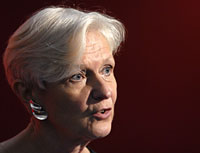
People from ethnic minorities remain disproportionately represented on mental health wards with no signs of this reducing, the Care Quality Commission revealed today.
The sixth and last Count Me In census found that 23% of 32,799 people receiving in-patient care in England and Wales were from ethnic minority groups, as of 31 March this year.
The proportion is up by a percentage point from last year’s census and above the baseline of 2005, when the proportion was 20%, the CQC found. It compares to an ethnic minority population of 16% as of 2007.
The census found admission rates to hospitals were at least two times higher than average for people from black Caribbean, black African and mixed white/black groups in 2010. Rates of detention were between 19% and 32% above average for these groups.
The census has been undertaken annually since 2005 in support of the Department of Health’s five-year plan for improving mental health services for people from ethnic minorities, Delivering Race Equality in Mental Health Care (DRE), which has now ended.
The survey shows that although the total numbers of mental health in-patients have fallen since 2005, ethnic differences in rates of admission, detention under the Mental Health Act and seclusion have not changed.
The CQC said the findings did not in themselves show that mental health services were failing to meet the needs of black and minority ethnic service users. It said ethnic differences in rates of mental illness, pathways to care, and factors such as socio-economic disadvantages were contributory factors.
Citing the need to understand more about these factors and for greater collaborative working across sectors, CQC chair Dame Jo Williams, said it was time to move on from a one-day snap shot.
She said: “We are again highlighting the need for all involved to try to prevent mental ill-health by addressing these contributory factors and intervening early.
“This must be done by organisations not only in healthcare but also in other sectors, working collaboratively and with people from black and minority ethnic communities themselves.”
However, pressure group Black Mental Health UK said the figures exposed the continuing “stark inequalities” in treatment for patients from ethnic minorities.
“It is clear that the DRE programme has not had an impact on the experience of black people detained under the Mental Health Act, in fact the numbers in this census report are an indication that we have taken a step backwards, said Professor Sashi Sashidharan, a consultant psychiatrist and member and panel member on the David Bennett Inquiry, which led to the DRE programme.
Yesterday a report from charity the Men’s Health Forum on the mental wellbeing of men from ethnic minorities recommended the development of “effective partnerships with community organisations and across sectors and to create safe environments where young men can talk about their vulnerabilities.”
What do you think? Join the debate on CareSpace
Keep up to date with the latest developments in social care. Sign up to our daily and weekly emails
Related stories
CQC’s Count Me In census reveals picture of mental health services for ethnic minority groups
Using faith to help Muslims face mental health problems
Special Report: black people over represented in mental health system


 Bournemouth, Christchurch and Poole
Bournemouth, Christchurch and Poole  Hampshire County Council
Hampshire County Council  Lincolnshire County Council
Lincolnshire County Council  Norfolk County Council
Norfolk County Council  Northamptonshire Children’s Trust
Northamptonshire Children’s Trust  South Gloucestershire Council
South Gloucestershire Council  Wiltshire Council
Wiltshire Council  Wokingham Borough Council
Wokingham Borough Council  Children and young people with SEND are ‘valued and prioritised’ in Wiltshire, find inspectors
Children and young people with SEND are ‘valued and prioritised’ in Wiltshire, find inspectors  How specialist refugee teams benefit young people and social workers
How specialist refugee teams benefit young people and social workers  Podcast: returning to social work after becoming a first-time parent
Podcast: returning to social work after becoming a first-time parent  Podcast: would you work for an inadequate-rated service?
Podcast: would you work for an inadequate-rated service?  Family help: one local authority’s experience of the model
Family help: one local authority’s experience of the model  Workforce Insights – showcasing a selection of the sector’s top recruiters
Workforce Insights – showcasing a selection of the sector’s top recruiters 

 Facebook
Facebook X
X LinkedIn
LinkedIn Instagram
Instagram
Comments are closed.